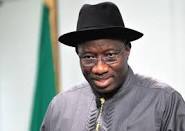By every standard, even in Nigeria where new standards are set every day in our never ending quest to shock and awe the world with impunity, the figures reeled out in the indictment of former National Security Adviser Colonel Sambo Dasuki (rtd) would boggle any mind.
According to Femi Adesina, Special Adviser to President Muhammadu Buhari on media and publicity, citing the interim report of the Air Vice Marshall Ode panel on arms procurements since 2007, no less than N643 billion (or $2.2 billion) was spent through—to use either the panel’s quaint phrase—“interventions from some organisations that provided funds” for what turned out to be “illicit and fraudulent financial transactions” under the guise of arming the military to put down the Boko Haram Islamic fundamentalist insurgency. But these figures were conjured out of the witch-hunting hat of Buhari’s investigative panel, say Jonathan and Dasuki in effect. Speaking from Washington, D.C., in the United States where he gave a speech on “elections and democratic consolidation in Africa,” Jonathan denied awarding any billion-dollar arms contract. “I did not award any $2 billion contract for procurement of weapons,” adding for emphasis, “Where did the money come from?”
The figures truly beggar belief, especially in a country borrowing money to pay salaries, and make Jonathan sad: “Sometimes, I feel sad when people mention these figures,” he said—shaking his head and a step from weeping for his country of liars and witch-hunters, I imagine.
Yet, it was Dasuki, his NSA, who implicated Jonathan in any scandal that may yet be proved, even if in the end the figures are not exact to the last fraction of a billion. “Nigerians should note,” said Dasuki in his reaction to Adesina’s statement and the report that President Buhari had ordered the arrest of all persons indicted in the report, “that all the services generated the types of equipment needed, sourced suppliers most times and after consideration by the Office of the NSA, the President will [sic] approve application for payment.” But he who asserts must prove, so Dasuki must now tender evidence to show that he was not usurping the powers of the military command by turning himself into the “clearing house” in the procurement of weapons for the armed forces. Not a small thing, I think, when an individual becomes a house. Nor when it is a[ppears that between the former NSA and his former boss, one person must be lying—or if that is too strong a word, not telling us the whole truth. Jonathan: “I did not award any $2 billion contract for procurement of weapons.” Dasuki: “There was no contract awarded or equipment bought without approval from the then President and Commander-In-Chief.” So, the needed arms were bought. Dasuki even names the types and the quantities, including Alpha jets, helicopters and other military hardware that we do not have to search for with a magnifying glass.
As it happened, however, the more the billions that were spent to equip our army for the fight against Boko Haram, the more the lives wasted (soldiers’ and civilians’). The former Chief of Defence Staff, Air Vice Marshal Badeh, very loudly indicted himself by confessing that he sent soldiers to battle literally bare-handed, leading to my column “Arms and the Nigerian Army” (Vanguard, 5 August 2015). Yet, Dasuki cites grateful acknowledgements of delivery of the weapons that the service chiefs had requested and had been bought by him (Dasuki, as it is safe to assume). Why then were our soldiers driven to mutiny and Brigadier Enitan Ransome-Kuti sacrificed in a face-saving measure on the altar of corruption in the military? Was it to prove who the liars are in this matter of arms and the man?
Which brings me to the point I mentioned earlier: how Dasuki as an ordinary NSA usurped the powers of the Chief of Defence Staff and Minister of Defence combined. And, if Jonathan is to be believed, even the powers of the president as well. One of the most devastating results of the long and brutal military misadventure in our politics is the incalculable harm it did to our psyche as it relates to power and authority. Within the military itself, the harm was total: professionalism and discipline were destroyed. Thus, General Abacha’s chief security officer, a mere major, became so powerful that Generals fell at his feet to beg for their lives after being framed in a coup plot. Just as a colonel, and a retired one at that, became the “clearing house” for arms procurement for the military. Where was the CDS in all of this? And the Minister of Defence to whom the CDS and the service chiefs ought to report, the minister in turn reporting to the president? How did it become possible for the NSA whose role ends with advising the president on security matters, and so with policy issues, end up as the “clearing house” of the armed forces?
If it is true that Dasuki was never invited to state his case before the interim report damning him was compiled, then that is a lapse that President Buhari must not accept. The former NSA must be heard before the final report is compiled. Yet even after Dasuki shall have been heard, by the panel or the courts, this question will remain his strongest indictment in the court of public opinion. By the same token, it shall also be our collective indictment: that we have been content to allow public servants become our lords and masters under any guise. Our military-wounded psyche needs to be healed, fast else we shall remain slaves to power.
SAHARA REPORTERS
END


Be the first to comment